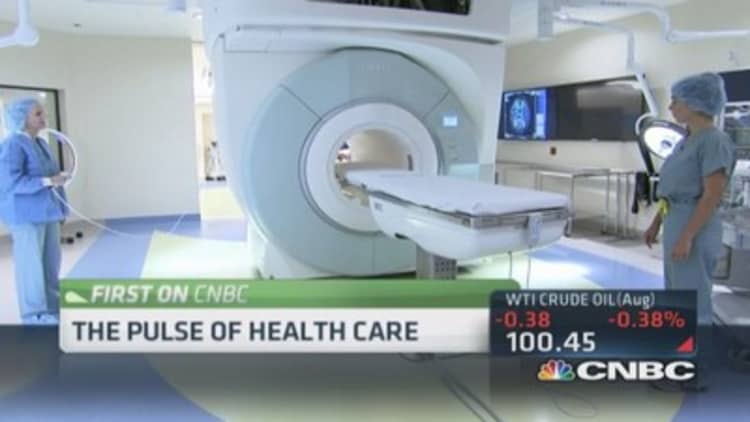
It could take a "couple of years" to figure out the full costs of Obamacare to health-care providers, said Bernard Tyson, chairman and CEO of Kaiser Permanente—one of the nation's largest not-for-profit health plans, serving approximately 9.3 million members.
"We still have work to do better to understand the costs obviously because in most cases this is a new population in which they haven't had coverage before," he said on CNBC's "Squawk Box"on Monday.
As a supporter of Obamacare, Tyson pushed back against the notion that it's causing higher costs. "If someone gets sick, they get care," he said. "But unfortunately it's in the most expensive part of the health-care system: the emergency department."
He contented that Obamacare is helping to change that. "To the extent that people have now access to care to get into systems like Kaiser Permanente through the front door, we think that's a good thing."
Tyson acknowledged that Obamacare brings challenges in determining who makes the decisions on who gets certain procedures and treatments. "We're right now having these kind of debates on specialty drugs. On one hand it's a wonderful thing because we have the opportunity to care. But on the other hand, it costs too much."
"Specialty drugs are too expensive," he continued. "We'll continue to work with the pharmacy industry to lower the price."
Read MoreObamacare's big winners: Young, Latino and poor
Kaiser Permanente, founded in 1945, is headquartered in Oakland, California, where the group just opened a $1.3 billion medical center with a heavy emphasis on technology in health care. "Last year, we had over 14 million doctor office visits virtually ... done through the computer."
In addition to using technology, Tyson said Kaiser Permanente is working to evolve the treatment model. "In the 20th century, the doctor was the centerpiece of everything," he said. "In the 21st century, there are other wonderful health professionals who can actually help to provide care as needed."
—By CNBC's Matthew J. Belvedere


